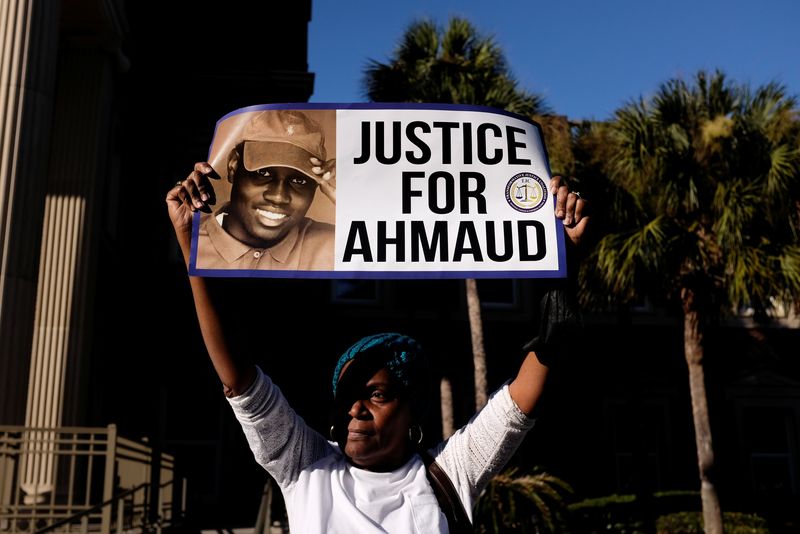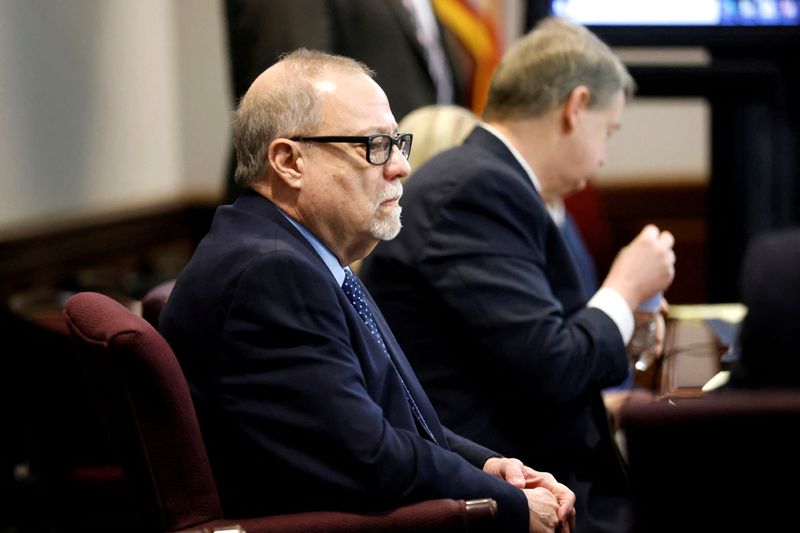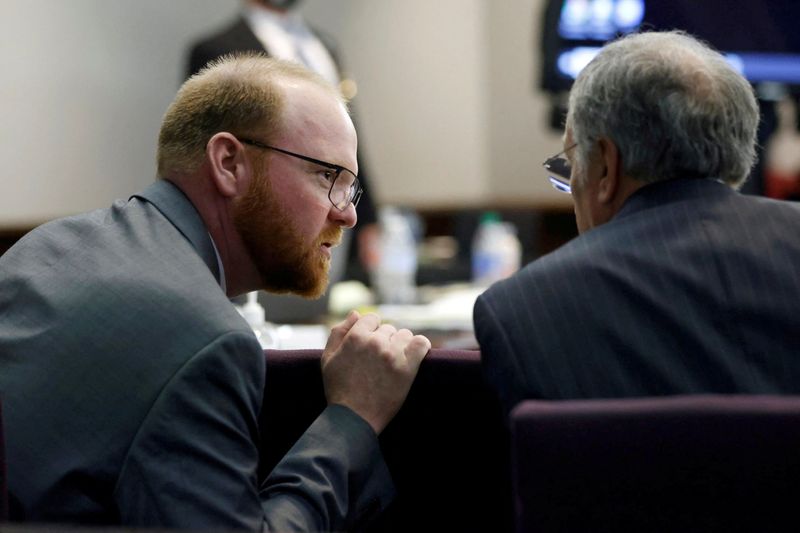By Rich McKay
Atlanta -The first round of jury selection ended late Monday with 52 potential jurists interviewed in the U.S. federal hate-crimes trial of the three white men who murdered Ahmaud Arbery, a Black jogger who was chased and shot while running through a mostly white Georgia neighborhood.
The final panel seated will be asked to decide whether racial animus drove the defendants to fatally pursue Arbery in the Satilla Shores neighborhood in coastal Georgia in February 2020. Gregory McMichael, 66, his son Travis McMichael, 36, and neighbor William “Roddie” Bryan, 52, were convicted of murder in an earlier state trial.
A state judge sentenced the men to life in prison, ruling that the two McMichaels would not be eligible for parole, after a jury of one Black man and 11 white men and women rejected the men’s self-defense claims in November.
It took three weeks to seat the state court jury.
Jury selection in the federal trial, which the U.S. District Court in Brunswick, comes shortly after Gregory and Travis McMichael offered to plead guilty to the hate-crime charges in agreements with prosecutors that were later scrapped..
Selecting a jury to hear the case will be complicated by the publicity that surrounded both the murder and the earlier trial, said Julie Campanini, a jury consultant with Magna Legal Services based in Philadelphia.
“Potential jurors might have firm opinions,” she said. “That doesn’t disqualify them though. The test is whether they can set that aside and decide the case only on the evidence presented.”
The McMichaels nearly avoided the federal trial by entering into a plea deal with prosecutors.
At a hearing last week, Travis McMichael said he was willing to admit to trying to apprehend Arbery because of his “race and color” as part of the plea agreement.
But he changed his mind after U.S. District Judge Lisa Wood rejected that agreement. She said she would not accept it because it bound her to a fixed sentence: 30 years in federal prison before he would be handed back to the state of Georgia to serve out the rest of his life sentence for murder.
Gregory McMichael had reached a similar plea agreement with prosecutors, but also withdrew from it.
The family of Arbery decried the potential plea deal, saying that they will only get full justice with this second trial.
“We want the world to see a trial, see why these men did what they did,” Arbery’s father said in an interview with Reuters.
The men are charged in federal court with using threatening force to interfere with Arbery’s rights on the basis of race, a hate crime. The charge carries a maximum of life in prison.
The three are additionally charged with attempted kidnapping, and the McMichaels face gun charges.
Judge Wood said in court that she plans to call 50 potential jurors a day, drawn from 43 south Georgia counties, until a panel of 12 jurors and four alternates are found.
There were 52 potential jurists interviewed Monday and of that, 30 were told to come back to court next week for the next round of selection, with the court’s goal to ultimately seat 12 jurors and four alternates.
Campanini said that the court could struggle to call 50 people every day, given there are three sets of defense attorneys, as well as the prosecution, all of whom could possibly interview each potential juror.
“They’ll seat a jury, but don’t count on it being quick,” she said. “It will take a significant about of time.”
(Reporting by Rich McKay in Atlanta; Editing by Aurora Ellis and Jonathan Oatis)



